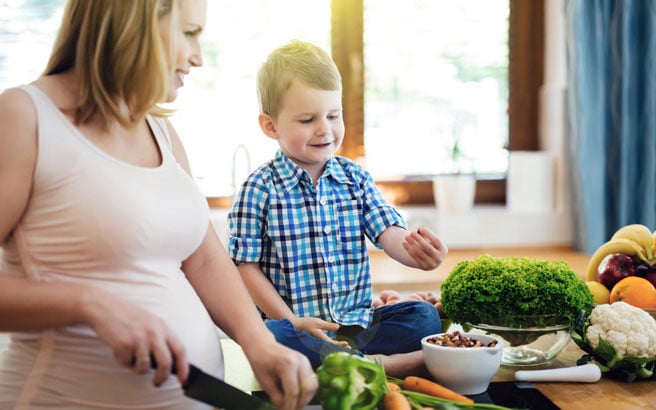 Dr Paul C Rogers is a paediatric oncologist at British Columbia Children’s Hospital and Professor at the University of British Columbia in Vancouver, Canada. For International Childhood Cancer Day he explains why prevention must start pre-conception.
Dr Paul C Rogers is a paediatric oncologist at British Columbia Children’s Hospital and Professor at the University of British Columbia in Vancouver, Canada. For International Childhood Cancer Day he explains why prevention must start pre-conception.
A couple of years ago I was the medical officer of 17 young cancer survivors on an adventure trip. I undertook an informal food questionnaire on these brave kids. None of them had adequate nutritional knowledge nor were they eating to recommended nutritional guidelines. Their consumption of highly refined sugary foods and drinks was alarming, as was the inadequate consumption of fruit and vegetables.
Good nutrition during pregnancy, childhood and adolescence
A fundamental mistake when considering the impact of nutrition on cancer prevention is ignoring that prevention should start before conception, continue during pregnancy, infancy, childhood and adolescence, to have maximum optimal benefits at all ages.
Childhood leukaemia, for example, has a poorer prognosis in both undernourished children as well as the other end of the malnutrition spectrum, obese children. In high-income countries, overall survival for most childhood cancer is in excess of 80 per cent. However, in low-income countries, where the majority of children with cancer are, that statistic is sadly closer to 20 per cent or even lower. I have seen too many severely undernourished children in low-income countries die unnecessarily of cancer.
Nutrition and childhood cancer survival
Good nutritional counselling and support has been documented to be of benefit in helping children cope with their cancer. This helps by increasing their wellbeing and minimising toxic effects of aggressive chemotherapy, radiation therapy and surgery. In some countries, such as India, they have dramatically improved childhood cancer survival by implementing nutritional interventions both directly with the patient and for their family support groups.
The literature shows a decrease in childhood leukaemia and neuroblastoma when there is adequate fruit and vegetable consumption or folic acid supplementation during conception and pregnancy. Nutrition is fundamental to wellbeing at every stage of life but especially important during early periods of life. Good nutrition during pregnancy, childhood and adolescence has the most long-term benefit to an individual’s wellbeing, prevention of cancer as well as other non-communicable diseases (NCDs).
How do we put health information into action?
There is a plethora of nutrition articles in the media and online providing information as to which foods are bad or good for you. Despite the benefits of good nutrition being widely published in lay and medical literature, there is little consensus on how nutrition can be included and implemented within prevention strategies. These strategies could help give nutritional advice to parents, support schools in educating our children, help reach out to health care providers and the general population.
The present focus of cancer control, however, is mainly on early diagnosis and treatment and not on trying to prevent cancer in the first place. Furthermore, the vital importance of nutrition is often overlooked.
Many countries do not have public health policies that ensure adequate and appropriate nutrition for the population. The consumption of junk food and sugar-sweetened beverages (SSBs) is a scourge on our society and a main contributor to obesity, which is a risk factor for cancer and other NCDs.
Childhood cancer survivors
Paediatric cancer care is about curing young patients, and we do have a high success rate when hospitals or clinics have the appropriate resources. We are very aware of the significant long-term complications of cancers and their treatments. Childhood cancer survivors are at increased risk of secondary cancers due to the treatment they receive, the underlying initial cancer type they had and the lifestyle choices they make. However, some of these side-effects can be minimised with nutrition and physical activity counselling and interventions.
Focus on prevention
There are many guidelines available on appropriate nutrition, but they need to be more effectively used and promoted. Funding of research for preventative interventions and the practice of prevention are inadequate; prevention does not gain the level of support or attention it deserves and requires. Could this be because prevention does not have the emotional appeal of that of a dying cancer patient?
A cancer control strategy has to embrace an active preventative programme, with a strong focus on nutrition, which must begin at the time of pregnancy, if not before. Polio was not eliminated by finding a cure but by finding a successful prevention strategy – let’s do the same for preventable cancers.
